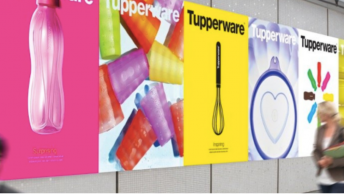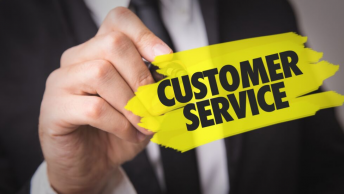In the digital space, personal branding is mostly comprised of a user’s online presence. A negative presence can have a significant impact on his or her life.
The folks at Hubspot developed an infographic that provides a complete A to Z guide to personal branding.
I have transcribed the list for easier consumption.
Now dig in…
- Authenticity – Anything other than the real you won’t do. Discover exactly what makes you fascinating. Build your brand on your true strengths.
- Blog – An insightful website is the engine of your personal brand. Your blog is its fuel. You need to start a blog, and once you do, there’s no stopping.
- Content – Valuable content has magnetic power. Create an interesting mix of content to earn the mindshare and trust your brand needs.
- Define Your Audience – To focus on the needs of your readers, you must define their pain points and identify how you can help. Conducting surveys will be very useful.
- Email List – Email is your ace, the money media. It’s private, permission-based and pervasive. Commit to developing an email list and using it.
- Focus – Blurry brands languish. Define your brand with a focused niche to connect with the minds of those you aim to influence.
- Graphic Design – Everything you create should be presented with class and continuity. Develop a tasty logo, color palette and design standards that reflect well on your brand.
- Help Others – Don’t wait for opportunities to come to you. Find ways to be helpful. Be the first to volunteer, connect people, or get behind any meaningful mission.
- Influencers – Influential professionals have prominent friends. Seek out leaders. Surround yourself with them. Find ways to be of value to them.
- Join – Affiliations are all-important to the growth of your brand. Find groups you’d be proud to be a part of, get involved, and make your presence known.
- Keywords – When surfers go a-Googling, which words will lead them to you? Build a short list of the most relevant keywords and use them often.
- LinkedIn – It’s today’s “who’s who” of the professional world. Take LinkedIn seriously and master its every nook and cranny.
- Media – Media is more complex than ever, and more vital. Identify the outlets that are most valued in your field, and use their tools to elevate your brand.
- Network – Make connections locally, regional, and globally. Have a business card or something of even greater value to distribute. Follow up and follow through.
- Opine – Nix the notion of universal appeal. Take strong stands on your ideals and voice your opinions. There’s no notoriety in bland land. Be bold.
- Photo – Your face must appear all across the social sphere. Don’t scrimp here. Hire a pro to do a photo shoot and pick the portrait that says “I’m your friend.”
- Questions – Ask questions. Ask people to tell you their stories. Ask for their ideas. And then listen closely. Everyone loves a good listener.
- Recognize – You won’t achieve your goals on your own. Privately and publicly, recognize the contributions of every person who’s played a part in your brand development.
- Slogan – Your brand should be the promise you make. Work at developing a unique selling proposition and express it in a concise, memorable slogan.
- Teach – Every person you admire taught you valuable lessons. Commit to nurturing the teacher within and build your brand by becoming a trusted advisor.
- Understand Triggers – Weak brands focus solely on intellectual arguments. Strong brands tap into emotions. The subject you need to master is psychology. Become a student of it.
- Voice – People remember how you made them feel. What you say is important, but how you say it is even more important. Develop a unique and genuine voice.
- Win Friends and Influence People – Dale Carnegie’s classic book remains unsurpassed as the essence of influence. Reread it and win new friends.
- eXamine – Your x-ray for all online efforts is analysis. Deploy Google Analytics and/or additional tools to inform you of how visitors behave on your site and what you can do to improve their experience.
- You – The first rule of writing emotively is using the first person. You are “I”. The reader is “you.” If you want to push their buttons, write conversationally.
- Zeal – Zeal is a “strong feeling of interest and enthusiasm that makes one determined to do something.” Without it, there’s no point in building a personal brand.
Infographic












